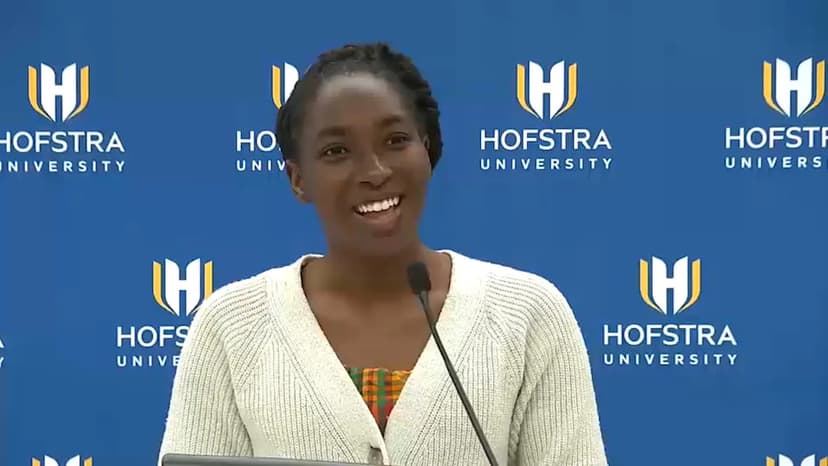Home / Education / Antigua Native Resa Nelson Becomes Hofstra's First-Ever Rhodes Scholar
Antigua Native Resa Nelson Becomes Hofstra's First-Ever Rhodes Scholar
15 Nov, 2025
Summary
- Resa Nelson, 21, is Hofstra's first-ever Rhodes Scholar
- She is working on transforming seaweed into sustainable biofuel
- Nelson plans to develop the first Afro-Caribbean stem cell line

In November 2025, Hofstra University is celebrating a historic achievement - the school's first-ever Rhodes Scholar. Resa Nelson, a 21-year-old biology major in the class of 2026, has been selected for the prestigious academic honor.
Nelson, who hails from Antigua, has been working on transforming seaweed from her native Caribbean island into sustainable biofuel. She was chosen from among nine finalists, becoming just the second Rhodes Scholar from Antigua. Overall, Nelson was one of about 100 students chosen from around the world for the prestigious award.
Originally, Nelson had planned to attend medical school and become a doctor, but her plans changed once she started doing research. The biology major is now fascinated by finding solutions to complex problems, including the issue of shoreline pollution in the Caribbean. "I realized I loved the act of discovery, the process of asking questions, and finding answers," she said.
Nelson has been conducting her research under the guidance of Hofstra Biology Professor Dr. Javier Izquierdo, who believes the 21-year-old student's recognition as a Rhodes Scholar is just the beginning of her accomplishments. "I would not be surprised if we're talking about Resa becoming not only a Rhodes Scholar, but the president of a corporation or a Nobel Prize winner at some point," he said.
In addition to her work on biofuels, Nelson has also studied cancer immunology and neurobiology. She is committed to service and mentorship, volunteering at a local middle school and tutoring students. "Education for kids is something I'm passionate about," she said. "I know what it's like to grow up where your options feel limited. Having someone believe in you can make all the difference."
As she prepares to continue her studies at the University of Oxford in the U.K., Nelson is already thinking about her 10-year plan, which includes developing the first Afro-Caribbean stem cell line. "That's my big dream that we can take a stem cell and turn it into anything and then that can be used as a diagnostic tool," she said.


